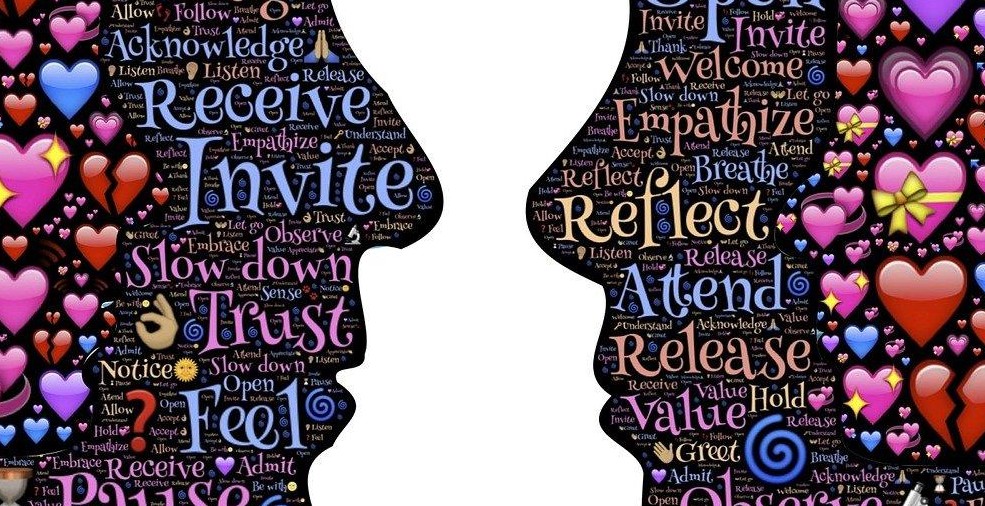Navigating the Complexities of an Open Relationship: A Woman’s Guide
As a love and relationships psychology guru, I have spent years studying and counseling couples in various relationship dynamics. However, my expertise goes beyond just academic knowledge. I have also had personal experience in open relationships, which has given me a unique perspective on the complexities and challenges that come with this type of relationship.
Open relationships can be a fulfilling and liberating experience for many women. They offer the opportunity to explore different aspects of their sexuality, connect with others on a deeper level, and challenge traditional societal norms. However, they also require a great deal of communication, trust, and honesty to make them work.
In this article, I will share my personal experience and knowledge to guide women through the complexities of an open relationship. Whether you are considering opening up your current relationship or have already taken the plunge, this guide will provide you with valuable insights and practical advice to navigate this unique relationship dynamic.
So, let’s dive in and explore the world of open relationships together!

Understanding Open Relationships
Open relationships are becoming increasingly popular in today’s society as people explore alternative ways of expressing love and commitment. An open relationship is a type of relationship where both partners agree to have sexual or romantic relationships with other people outside of the primary relationship.
Defining Open Relationships
Open relationships come in different forms, and partners can set their own rules and boundaries. Some couples may agree to have sexual relationships with other people, while others may allow emotional connections and long-term relationships. However, the defining feature of an open relationship is that both partners are aware of and agree to the arrangement.
The Benefits of Open Relationships
Open relationships can offer many benefits, such as increased sexual exploration, improved communication, and greater emotional intimacy. Partners in open relationships can explore their desires and fantasies without fear of judgment or rejection. Additionally, open relationships can promote honesty and transparency, as partners must communicate their feelings and desires openly to maintain a healthy relationship.
The Challenges of Open Relationships
While open relationships can be rewarding, they also come with challenges. Jealousy and insecurity can arise when one partner forms a deeper connection with someone else. Additionally, open relationships require a high level of trust and communication to ensure that both partners feel heard and respected. Open relationships may not be suitable for everyone, and partners must be willing to put in the work to make the arrangement successful.
Overall, open relationships can offer a unique and fulfilling way to express love and commitment. However, it is essential to approach the arrangement with honesty, respect, and communication to navigate the complexities that come with this type of relationship.

Communication in Open Relationships
In any relationship, communication is key, and it is even more important in an open relationship. Open relationships are built on trust, honesty, and mutual respect, and communication plays a crucial role in maintaining these values.
Establishing Boundaries
One of the most important aspects of communication in an open relationship is establishing clear boundaries. Without clearly defined boundaries, misunderstandings can arise, leading to hurt feelings and damaged relationships.
When establishing boundaries, it is important to be honest with yourself and your partner about what you are comfortable with. This may include discussing what types of relationships or activities are allowed outside of the primary relationship, how much time can be spent with other partners, and how you will communicate about your experiences with each other.
It is also important to be flexible and willing to revisit boundaries as the relationship evolves. As you and your partner gain more experience with open relationships, you may find that your boundaries need to be adjusted to better meet your needs and desires.
Effective Communication Techniques
Effective communication in open relationships requires more than just setting boundaries. It also involves actively listening to your partner, expressing your needs and desires, and being open to feedback.
One technique that can help facilitate effective communication is the use of “I” statements. Instead of placing blame or making accusatory statements, “I” statements allow you to express your feelings and needs in a non-confrontational way. For example, instead of saying “You always ignore me when you’re with your other partner,” try saying “I feel ignored when you don’t give me your full attention.”
Another important communication technique is active listening. This involves giving your partner your full attention, asking clarifying questions, and reflecting back what you have heard to ensure that you have understood their message correctly.
- Set clear boundaries
- Be honest and flexible
- Use “I” statements
- Practice active listening
Table: Effective Communication Techniques
| Technique | Description |
|---|---|
| “I” statements | Expressing feelings and needs in a non-confrontational way |
| Active listening | Giving full attention, asking clarifying questions, and reflecting back what was heard |
Jealousy and Envy in Open Relationships
As someone who has been in an open relationship for several years, I can attest that jealousy and envy are common emotions that arise. It’s important to understand that these feelings are normal and can be managed with effective communication and self-reflection.
Understanding Jealousy and Envy
Jealousy is often described as a fear of losing something or someone that is important to us. In the context of an open relationship, this fear can stem from a partner spending time or being intimate with someone else. Envy, on the other hand, is a feeling of wanting something that someone else has. In the context of an open relationship, envy can arise when a partner is experiencing something new or exciting with someone else.
It’s important to differentiate between jealousy and envy, as they can have different underlying causes and require different approaches to manage.
Managing Jealousy and Envy
The key to managing jealousy and envy in an open relationship is communication. It’s important to have open and honest conversations with your partner(s) about your feelings and fears. This can help to build trust and understanding, and can also help to identify any underlying issues that may need to be addressed.
Self-reflection is also an important tool for managing jealousy and envy. It’s important to understand why you may be feeling these emotions and to work through them on your own. This can involve identifying any insecurities or fears that may be contributing to your feelings, and working to address them in a healthy way.
Finally, it’s important to remember that jealousy and envy are normal human emotions. It’s okay to feel these things, but it’s important to manage them in a healthy way in order to maintain a healthy and fulfilling open relationship.
| Do: | Don’t: |
|---|---|
|
|
Maintaining Emotional Health in Open Relationships
Being in an open relationship can be an incredibly rewarding experience, but it can also be challenging to navigate. In order to maintain emotional health in an open relationship, it’s important to prioritize self-care and develop strategies for managing emotional triggers.
Self-Care Strategies
Self-care is crucial for emotional health in any relationship, but it’s especially important in open relationships. Here are some self-care strategies that have worked for me:
- Take time for yourself: It’s important to have time alone to recharge and reflect. Set aside time for yourself each week to do something that brings you joy.
- Practice self-compassion: Being in an open relationship can bring up feelings of jealousy and insecurity. Practice self-compassion by acknowledging these feelings and treating yourself with kindness and understanding.
- Stay connected with friends and family: Having a support system outside of your relationship can help you maintain emotional balance.
- Engage in activities that promote relaxation: Whether it’s yoga, meditation, or a hot bath, find activities that help you relax and make them a regular part of your routine.
Managing Emotional Triggers
Open relationships can bring up a lot of emotions, and it’s important to have strategies for managing them. Here are some tips for managing emotional triggers:
- Identify your triggers: Reflect on what triggers your emotional responses. Is it seeing your partner with someone else? Hearing about their experiences with other people? Once you know your triggers, you can develop strategies for managing them.
- Communicate with your partner: Open communication is key in any relationship, but it’s especially important in open relationships. Talk to your partner about your emotional triggers and work together to find ways to manage them.
- Practice mindfulness: Mindfulness can help you stay present in the moment and avoid getting caught up in negative emotions. When you feel triggered, take a moment to breathe deeply and focus on the present moment.
- Consider therapy: If you’re struggling to manage your emotions in an open relationship, consider seeing a therapist who specializes in relationships or sex therapy. A therapist can help you develop strategies for managing your emotions and navigating the complexities of an open relationship.
| Key Takeaway: | |
| Self-care strategies: | Take time for yourself, practice self-compassion, stay connected with friends and family, and engage in activities that promote relaxation. |
| Managing emotional triggers: | Identify your triggers, communicate with your partner, practice mindfulness, and consider therapy. |
Conclusion
After exploring the intricacies of open relationships, it’s clear that they are not for everyone. However, for those who choose to embark on this journey, it can be a liberating and rewarding experience.
Communication is Key
One of the most important aspects of any relationship, open or not, is communication. In an open relationship, communication is even more critical. It’s essential to have honest and open conversations with your partner about your needs, boundaries, and expectations. This will help you navigate any challenges that may arise and ensure that both parties are satisfied.
Self-Awareness is Crucial
To be successful in an open relationship, you must have a deep understanding of yourself. You need to know what you want and what you are comfortable with. This requires self-awareness and introspection. Take the time to reflect on your desires and boundaries and communicate them to your partner.
Respect and Trust are Vital
Open relationships require a high level of trust and respect. You must trust your partner to be honest with you and respect your boundaries. Without trust and respect, an open relationship is bound to fail.
Final Thoughts
While open relationships are not for everyone, they can be a fulfilling and exciting experience for those who choose to pursue them. With clear communication, self-awareness, trust, and respect, you can navigate the complexities of an open relationship successfully. Remember to always prioritize your own needs and boundaries, and never compromise your values for the sake of a relationship.
